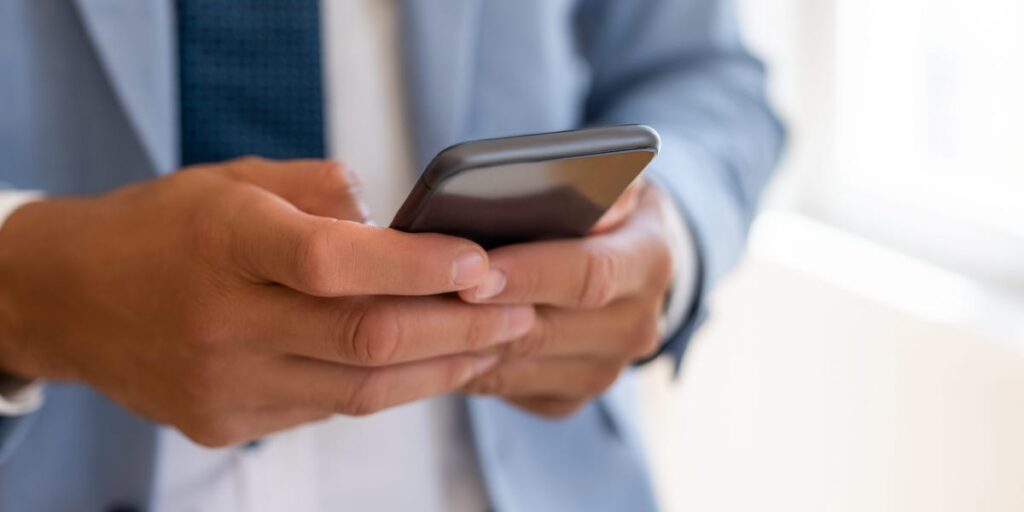The past year has been all about getting rid of toxic traits and relationships. I ended romantic relationships that drained me. I distanced myself from false friends. I walked away from professional situations that left me burned out, and I cut back on alcohol after realizing it had become more of a crutch than a celebration.
Each of those changes was deliberate. But there was one toxic relationship I hadn’t acknowledged — one I carried in my pocket every single day. My cellphone. More specifically, the apps that turned it from a tool into something that dictated how I spent my time, how I communicated, and even how I thought.
It crept in quietly: the late-night scrolling sessions, the reflex to check notifications during conversations, the way I’d reach for my phone without thinking the moment I felt bored or anxious. It wasn’t dramatic like a fight with a friend or a bad hangover, but it was just as corrosive.
When I finally admitted to myself that my phone might be my most toxic relationship, I knew I had to do something about it.
The breaking point: anxiety, bad sleep, and constant noise
The trigger wasn’t a single event but a buildup of small signals I couldn’t ignore. My sleep was wrecked. I’d lie awake for hours, scrolling TikTok or Instagram, checking X or LinkedIn, convincing myself that one more video or article would relax me. Instead, I’d wake up anxious, already behind, because my brain had been buzzing long before my alarm went off.
On top of that, my mood was unpredictable. I felt more irritable, more distracted, and less capable of focusing. I’d be mid-conversation with someone and realize I hadn’t processed a single thing they’d said because my brain was still spinning from something I’d read online.
I deleted all my apps
So, one Sunday night, I made a decision. I deleted everything: Instagram, TikTok, X, LinkedIn, Spotify, YouTube, Google Maps, WhatsApp, and even email.
The only apps I left were the green phone icon, the blue text bubble, and the other factory ones that come with an iPhone. I wanted to know what my life would be like if my phone stopped being a smartphone.
I didn’t know if the decision would last a week, a day, or even a few hours. And I knew some apps — like my banking app or Uber — would probably have to come back for practical reasons. But I wanted to start as radically as possible, and then adjust as needed.
The first week felt like withdrawal
The next morning, my thumb twitched toward the empty space where Instagram used to be. On the bus, in line for coffee, between meetings, even in the bathroom — every pause in my day triggered the same reflex. I’d open my phone and stare at a blank screen with nothing to offer me.
At first, it was frustrating. I felt restless and bored in a way I hadn’t in years. The quiet moments that I used to fill with scrolling suddenly stretched out like empty hallways. I caught myself inventing excuses to “just check something” online, even though there was nothing left to check.
But after a few days, the withdrawal softened. Instead of reaching for my phone, I started looking around. I noticed the conversations happening on the train. I paid attention to the way light filtered into my apartment in the morning. I FaceTimed my parents instead of sending quick messages in the family WhatsApp group. Dinners with friends felt deeper because I wasn’t glancing down every few minutes.
The absence of apps gave me a kind of presence I hadn’t realized I’d lost.
My life now feels lighter
By the end of the week, I reinstalled a few essentials — Google Maps to avoid getting lost, my bank app, WhatsApp so I could coordinate plans, my browser to access work and AI tools, and YouTube because running in silence was unbearable.
But I never re-downloaded Instagram, TikTok, or X. Even email and LinkedIn stayed off my phone. I just check those on my laptop when I really need to.
The change hasn’t made me perfect. I still check my phone too much, and I still feel the itch to scroll when I’m stressed. But overall, my life feels lighter. I sleep better. I start mornings with my own thoughts, not a flood of other people’s. My conversations last longer. My attention isn’t as fractured.
What started as an experiment has turned into a new habit. Each week, I try to use even the essential apps less and less. The fewer I rely on, the more freedom I feel.
Like the other toxic relationships I’ve left behind, letting go of the ones on my phone has made space for something better: a calmer, clearer version of myself.



